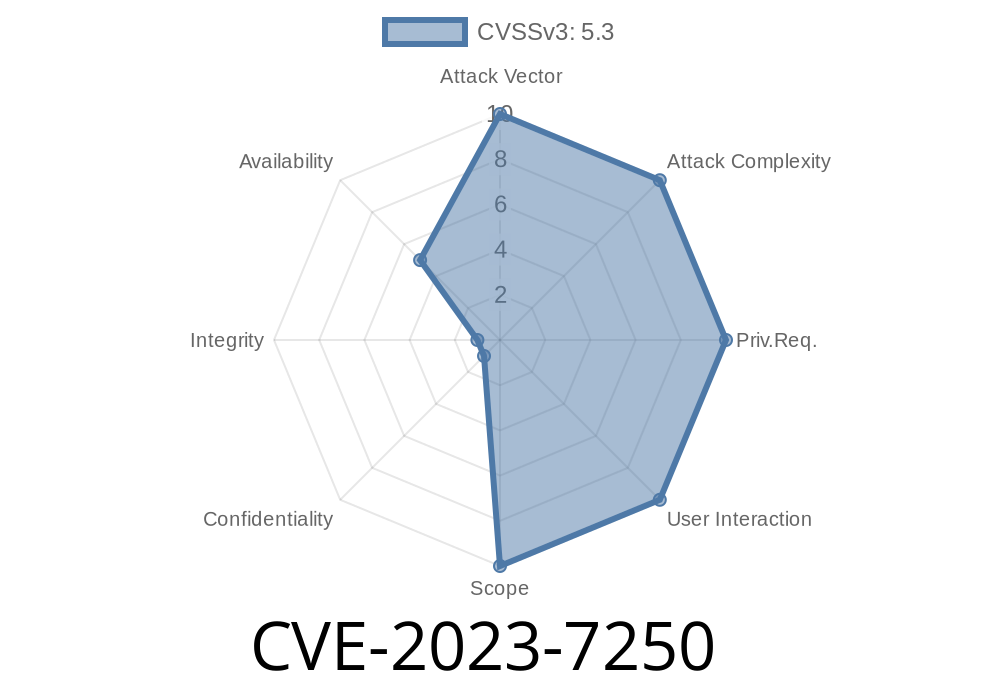A recent security vulnerability (CVE-2023-7250) has been discovered in iperf, a widely used utility tool for network performance measurement. This flaw can lead to denial of service attacks, causing serious disruptions in network communication. In this post, we will delve into the details of this vulnerability, explore how it can be exploited, and discuss what you can do to protect your network against this threat.
Background
Iperf is a popular command-line utility that enables users to measure network performance for various protocols, including TCP, UDP, and SCTP. To perform these measurements, iperf works in a client-server mode, with one machine acting as the server and another as the client. By simulating data transfers between the two machines, iperf helps to assess network throughput, latency, and more.
The Vulnerability
This vulnerability (CVE-2023-7250) arises from a flawed implementation in the iperf server's handling of client data. When a malicious or malfunctioning client sends less data than expected to the server, the server hangs indefinitely, waiting for the missing data to arrive. Consequently, the server remains unresponsive to new incoming connections, leading to a denial of service.
Exploit Details
To exploit this vulnerability, an attacker can create a custom iperf client that sends a smaller amount of data than the server expects. Once the server starts processing the client's input, it gets stuck waiting for the rest of the data, causing it to hang indefinitely, or at least until the connection is forcibly closed.
The section of the code containing this vulnerability is illustrated below
int server_receive (iperf_stream * sp)
{
int32_t remaining_bytes;
int32_t bytes_received;
...
remaining_bytes = sp->server_hdr.bytes;
...
while (remaining_bytes > ) {
bytes_received = Nread(sp->socket, sp->buffer, remaining_bytes, sp->settings);
...
remaining_bytes -= bytes_received;
}
...
}
In this code snippet, the server_receive function reads data from the client and processes it. The variable remaining_bytes is initialized with the value sent by the client. The server then reads data from the client in a loop until remaining_bytes becomes zero. However, since the client can send a smaller amount of data than expected, this loop may never exit, leading to a hung server.
Original References
This vulnerability was discovered and responsibly disclosed to the iperf maintainers by security researchers. You can find more details about this vulnerability in the original advisory:
- Iperf Security Advisory - CVE-2023-7250
Mitigation and Remediation
The iperf maintainers have released a patch that addresses this vulnerability by adding a timeout mechanism to the server's receiving loop. To protect your network from this vulnerability, you should:
1. Upgrade to the latest version of iperf (available at Iperf Official Website).
2. If upgrading is not possible, you can implement a network-based firewall rule to limit incoming connections to the iperf server, mitigating the risk of denial of service attacks.
Conclusion
CVE-2023-7250 is a critical vulnerability in the iperf network performance utility that can lead to denial of service attacks. It's important to stay informed about such vulnerabilities and apply the recommended mitigation measures to safeguard your network infrastructure. By keeping your software up-to-date and implementing robust network security practices, you can protect your network and data from potential threats.
Timeline
Published on: 03/18/2024 13:15:06 UTC
Last modified on: 03/18/2024 19:40:00 UTC
